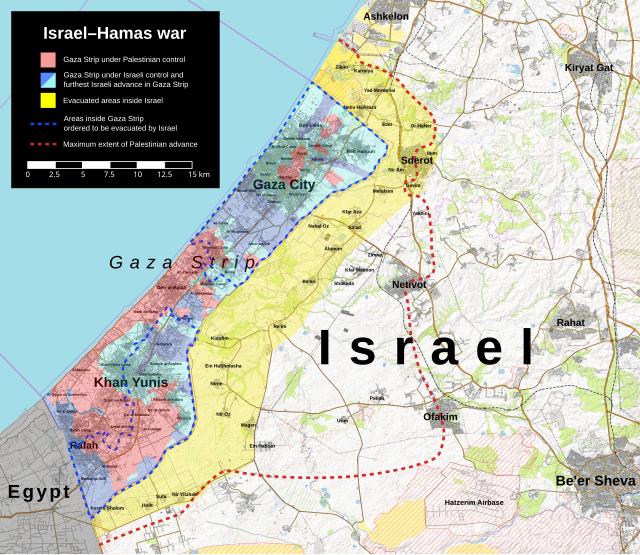Climate Change Faces Impact from Israel-Gaza Conflict
Hyphen Web Desk

The ongoing conflict has led to extensive destruction of infrastructure, including water treatment facilities and waste management systems. These critical assets are essential for maintaining public health and environmental sustainability. As a result, wastewater management has deteriorated significantly, leading to the contamination of local water bodies. This not only threatens marine ecosystems but also endangers the health of communities relying on these resources for their daily needs.
Experts emphasize that the destruction caused by military actions disrupts the delicate balance of local ecosystems. The immediate aftermath often results in the displacement of wildlife and the loss of biodiversity. Habitat destruction, particularly in coastal regions, is concerning as these areas play a crucial role in carbon sequestration and natural resilience against climate change. The loss of natural habitats further hinders the region's ability to adapt to rising sea levels and extreme weather patterns.
In addition to direct ecological damage, the ongoing conflict has diverted attention and resources away from climate initiatives. Governments and organizations often prioritize security and reconstruction efforts in conflict zones, neglecting environmental policies and sustainability projects. This lack of focus hinders progress towards meeting international climate goals, including the Paris Agreement objectives aimed at limiting global warming. The situation becomes more precarious as global attention shifts, leaving climate action sidelined in favor of immediate humanitarian and security concerns.
Agricultural practices in the region also face severe disruptions. The destruction of farmland and irrigation systems exacerbates food insecurity, leading to increased reliance on imported food. Agricultural resilience is essential for communities, especially in regions prone to climate variability. With the disruption of agricultural practices, the region faces a dual challenge of increasing food demand and dwindling production capacity due to the conflict's impact. The combination of these factors raises concerns about future food shortages and the economic stability of the area.
The conflict's effect on energy infrastructure cannot be overlooked. Energy production, particularly renewable sources such as solar power, has faced setbacks due to targeted strikes and infrastructural damage. The interruption of energy supplies not only affects households and businesses but also undermines the region's transition towards cleaner energy alternatives. In an era where the global community is pushing for a rapid transition to renewable energy sources to combat climate change, the ongoing conflict serves as a significant obstacle.
The involvement of international actors in the region further complicates the environmental landscape. Various geopolitical interests often take precedence over environmental concerns, leading to policies that exacerbate climate challenges. For instance, military operations contribute to greenhouse gas emissions, negating efforts made by neighboring countries to reduce their carbon footprints. The reliance on fossil fuels in military operations highlights the urgent need for a re-evaluation of energy strategies in conflict zones, aligning them with global climate objectives.
Local and international organizations are increasingly recognizing the need to integrate climate considerations into humanitarian responses. By addressing the environmental impacts of conflicts, organizations can better support communities in rebuilding their lives while promoting sustainable practices. However, the integration of climate action into conflict resolution remains challenging. The urgency of humanitarian needs often overshadows the long-term vision required for effective environmental stewardship.
As the conflict continues, the opportunity for meaningful dialogue and cooperation around climate action appears increasingly tenuous. Engaging stakeholders from various sectors, including environmental activists and local communities, is crucial to developing comprehensive strategies that address both immediate humanitarian needs and long-term environmental sustainability. Collaborative efforts can pave the way for innovative solutions that mitigate the ecological toll of conflicts, ultimately contributing to global climate resilience.
Local communities have begun to adapt their strategies in response to the intertwined crises of conflict and climate change. Grassroots movements advocating for sustainable practices have emerged, emphasizing the importance of preserving natural resources and biodiversity amidst the chaos. These initiatives highlight the resilience and resourcefulness of communities facing adversity while underscoring the critical need for support from global partners.
التسميات:
#Syndication
مشاركة:
